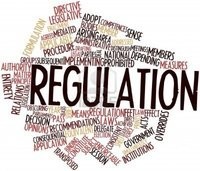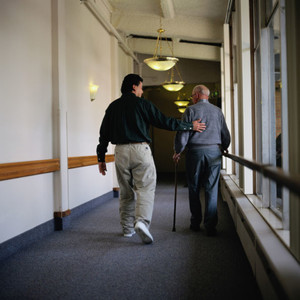Machado et al. analyse the clarity and regulatory guidelines associated with the approval process for biosimilars. Additionally, they examine the quantity of biosimilars that have received approval from 13 different medicines regulatory authorities in their review [1].
The use and approval of follow-on biologicals/ biosimilars in Latin America have been on the rise since the first biosimilar, erythropoietin, was released onto the market in 1990 in Argentina. Latin American countries have an unmet need for biological products at low prices [2].
The review of Machado et al. found that the timing of licensing the follow-on biologicals/ biosimilars varies significantly among different regulatory authorities.
Table 1 presents the number of follow-on biologicals/biosimilars authorized by year of first authorization in seven regulatory authorities in Latin America from 1997 to 2023. The majority of follow-on biologicals/biosimilars were approved from 2018 to 2020. ANVISA (Brazil) and INVIMA (Colombia) peaked in 2019 with 15 and 10 products approved, respectively. ANMAT (Argentina), ANVISA (Brazil), ISP Chile, and DRCPFA (Guatemala) displayed the highest number of approvals in 2020.
Four products (epoetin alfa, filgrastim, interferon alfa-2b and interferon beta-1b), classified as biosimilars by COFEPRIS (Mexico) were originally approved between 1997 and 2001, predating the establishment of the national Regulation 159 on similarity. However, all of them were included in the list of biocomparable medicines issued by COFEPRIS in 2020 [1].
Until early May 2023, Brazil, Mexico, and Guatemala approved the highest number of follow-on biologicals/biosimilars among the seven Latin American countries that were studied.
| Table 1: Number of follow-on biologicals/biosimilars approved by year in seven Latin American countries*
|
| Year of approval
|
Argentina
|
Brazil [3]
|
Chile
|
Colombia
|
Guatemala
|
Mexico
|
Peru
|
| 1997–2001
|
|
|
|
|
|
4
|
|
| 2006
|
|
|
|
|
|
|
|
| 2007
|
|
|
|
|
|
|
|
| 2008
|
|
|
|
|
|
|
|
| 2009
|
|
|
|
|
|
|
|
| 2010
|
|
|
|
|
|
1
|
|
| 2011
|
|
|
|
|
|
|
|
| 2012
|
|
|
|
|
1
|
|
|
| 2013
|
1
|
|
|
|
1
|
|
|
| 2014
|
|
|
|
|
|
2
|
|
| 2015
|
|
2
|
|
|
|
2
|
|
| 2016
|
4
|
1
|
|
|
|
|
|
| 2017
|
|
4
|
2
|
|
1
|
4
|
1
|
| 2018
|
1
|
4
|
2
|
2
|
4
|
|
|
| 2019
|
6
|
15
|
4
|
10
|
3
|
2
|
3
|
| 2020
|
7
|
10
|
6
|
3
|
7
|
1
|
3
|
| 2021
|
3
|
6
|
3
|
5
|
6
|
9
|
9
|
| 2022
|
2
|
5
|
2
|
2
|
3
|
5
|
3
|
| 2023
|
|
4
|
|
3
|
|
2
|
2
|
| TOTAL
|
24
|
51
|
19
|
25
|
26
|
32
|
21
|
| *Approvals until early May 2023.
|
ANVISA (Brazil) is the regulatory authority with highest number of approved follow-on biologicals/biosimilars in the Latin Americas region. By mid-May of 2023, ANVISA had approved 52 follow-on biological/biosimilar product [3].
In Chile and Peru, the licensing of follow-on biologicals/biosimilars began only in 2017. It is evident that expanding the availability of biosimilars is necessary to improve affordability of biological therapies. To achieve this goal, the implementation of regulations for follow-on biologicals/biosimilar licensing is crucial to promote access to biologicals with assured quality, safety and efficacy [1].
ANMAT (Argentina) - Administración Nacional de Medicamentos, Alimentos y Tecnología Médica
ANVISA (Brazil) - Agência Nacional de Vigilância Sanitária
COFEPRIS (Mexico) - Comisión Federal para la Protección contra Riesgos Sanitarios
DRCPFA (Guatemala) - Departamento de Regulación y Control de Productos Farmacéuticos y Afines
INVIMA (Colombia) - Instituto Nacional de Vigilancia de Medicamentos y Alimentos
ISP (Chile) - Instituto de Salud Pública de Chile
Related articles
Biosimilar terminology: insights from seven Latin American countries
Regulations of the registration of biosimilars in Latin America
References
1. Machado FLDS, Cañás M, Doubova SV, Urtasun MA, Marín GH, Osorio-de-Castro CGS, et al. Biosimilars approvals by thirteen regulatory authorities: A cross-national comparison. Regul Toxicol Pharmacol. 2023 Sep 1;144:105485. doi: 10.1016/j.yrtph.2023.105485.
2. Ortiz-Prado E, Ponce-Zea J, Vasconez JE, et al. Current trends for biosimilars in the Latin American market. Generics Biosimilars Initiative Journal. (GaBI Journal). 2020;9(2):64-74. doi:10.5639/gabij.2020.0902.011
3. Cestari de Oliveira SH. Follow-on biologicals/biosimilars approved in Brazil: May 2023 update. Generics Biosimilars Initiative Journal. (GaBI Journal). 2023;12(2):67-72. doi:10.5639/gabij.2023.1202.012
4. GaBI Online - Generics and Biosimilars Initiative. First approvals of similar biotherapeutics in seven Latin American countries[www.gabionline.net]. Mol, Belgium: Pro Pharma Communications International; [cited 2024 Mar 27]. Available from: www.gabionline.net/reports/first-approvals-of-similar-biotherapeutics-in-seven-latin-american-countries
Permission granted to reproduce for personal and non-commercial use only. All other reproduction, copy or reprinting of all or part of any ‘Content’ found on this website is strictly prohibited without the prior consent of the publisher. Contact the publisher to obtain permission before redistributing.
Copyright – Unless otherwise stated all contents of this website are © 2024 Pro Pharma Communications International. All Rights Reserved.








 0
0











Post your comment